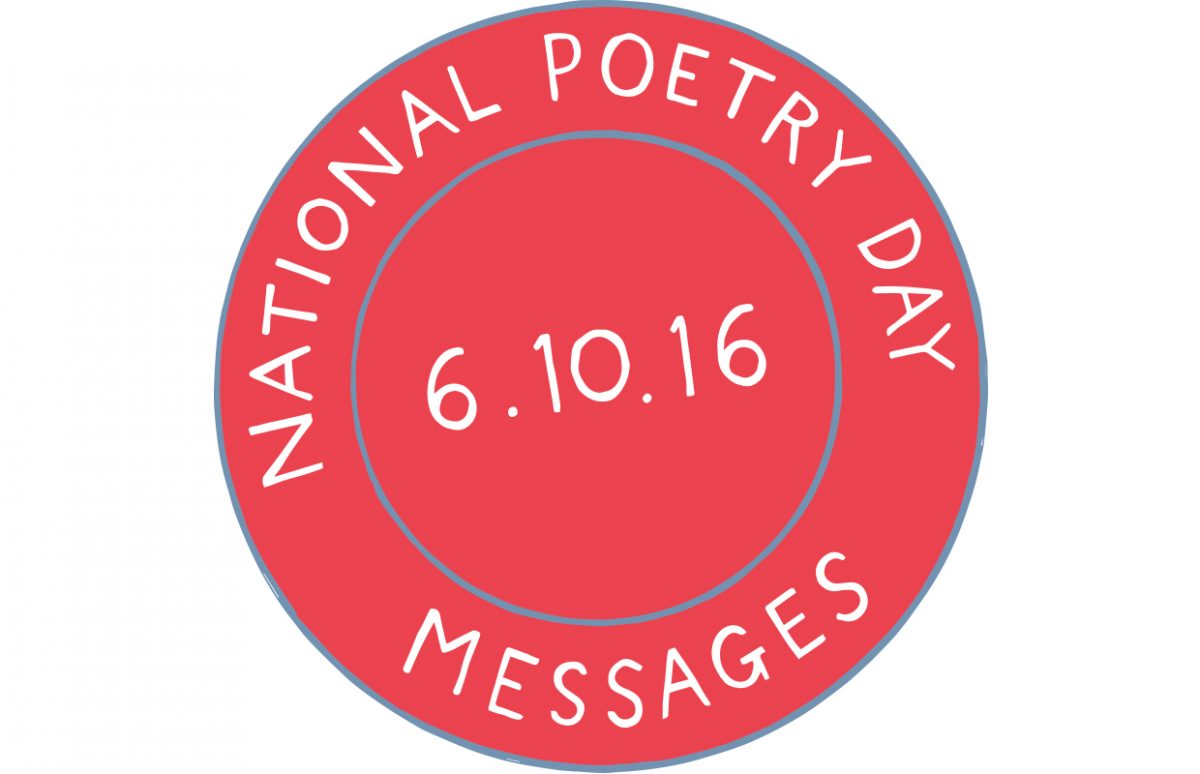In honour of National Poetry Day 2016 in the UK, on 6 October, there is a free ebook of poems to download from the National Poetry Day website. We've made a selection of those that work best for language teaching, with teaching suggestions.
You can download the ebook in epub, Kindle or pdf formats.
A1+ Rachel Rooney "Mirror"
This poem is only four lines long and in the present simple. But, as it is about a mirror, it's presented as if seen in a mirror. The difficulty is reading the reversed writing, but pupils should have fun figuring it out. Have a mirror to hand to put them out of their misery!
A2 Michaela Morgan "Note to Self"
A lot of the vocabulary and structures here are very accessible. Most of them are very "everyday" – items to buy and small errands and tasks. The rhyme and rhythm carry the reader along. As usual with "authentic" material, it's important to stress to pupils that they don't have to understand every single word in order to enjoy reading and get a lot out of it.
A2 Joseph Coelho "Just the Messenger"
Joseph Coelho is a performance poet and this poem about a three-way phone conversation about a lost phone would be great for pupils to perform. Good for imperatives, too!
A2+ Liz Brownlee "Dear Bee"
This lends itself well to a creative writing task – can pupils use the pattern to write to another creature or everyday object, list its activities and thank it? (Not necessarily rhyming – the rhyme in the original will help pupils enjoy it, but it is an extra difficulty to try to write in verse in a second language.)
The poem Liz Brownlee chose to share, Emily Dickinson's "Bee! I'm Expecting You", is slightly more difficult grammatically but pupils may well be able to tackle it once they've studied "Dear Bee".
A2-B1 Deborah Alma "What You Might Write"
This isn't difficult linguistically and again lends itself directly to creative writing, following its instructions, "Picture the place that you call home, and draw its shape as an outline on paper, fill it with words," and, "Now tell me… what you might write on a postcard home." At A2, pupils can concentrate on the first part. At B1 they can explore the melancholy tone and the more abstract elements.
B1 Joshua Seigal "I'm Sorry"
This is a little more difficult but perfect for a theme about bullying or civility in the classroom (vivre ensemble). And pupils' effort will pay off as it they reach the great twists in the tail, first, "I’m sorry for the things I did… so you’d give me attention," and then the final word, "Miss", which completely changes the reading. And gives you an opportunity to do some comparisons with how teachers, and adults are addressed in French (Programme 2016: Comparer certains aspects des fonctionnements des langues apprises ou connues, dont le français.)
B2 Matt Goodfellow "Messages"
This poem is deceptively simple at first read, but very rich when studied more closely. Studying Goodfellow's technique will help pupils learn to enrich their own writing in pertinent ways rather than adding words for the sake of it. The carefully chosen adjectives and verbs add so many layers of meaning while maintaining the appearance of simplicity. It would fit well alongside studies of poetry by Keats or Wordsworth in L.E.L.E.
Online Poems
You can search for poems by theme, too. The entries are by emotion, which is a topic that isn't treated enough in language learning. Several of the poems from the ebook are also here, plus some others.
Copyright(s) :
National Poetry Day
> Say it with a Poem on National Poetry Day
> Freedom Poems for National Poetry Day
> ‘What They Took With Them’: Refugee Poem
> Teaching with Roald Dahl
Tag(s) : "book" "creative writing" "messages" "National Poetry Day" "performance poetry" "poetry" "reciting"





